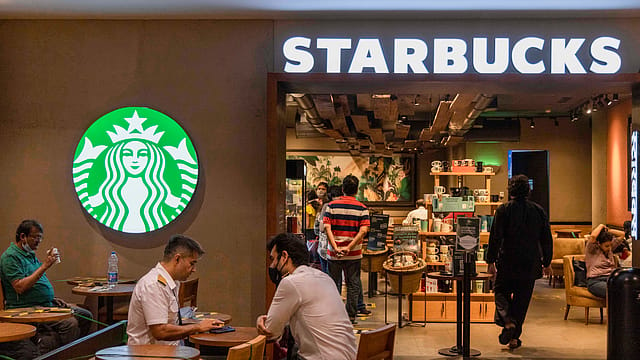Is Starbucks leaving India? Tata Consumer Products calls it “baseless”
ADVERTISEMENT

Amid ongoing speculation about future of Starbucks' operations in India, Tata Consumer Products has confirmed that the American coffee chain is not shutting its shop in India. Rumours have been circulating about Tata Starbucks JV shutting down operations in India due to rising losses and high operating costs.
“The company would like to state that the information…is baseless,” Tata Consumer Products said in an exchange filing today.
“Starbucks is fully committed to the Indian market. Any statements suggesting otherwise are false...India continues to be a key growth market for Starbucks globally," Starbucks said in a statement to Fortune India.
While Tata Starbucks may not be closing its operations in India, the JV is indeed slowing its expansion.
The joint venture between US-based Starbucks Corporation and Tata Consumer Products (TCP) plans to scale back its immediate store openings, citing inflationary pressures and real estate challenges. The company has revised its store-opening plans, reducing this year’s target from 100 to 80 new outlets and adjusting next year’s goal to 120 instead of 100. Despite these short-term adjustments, Tata Starbucks remains committed to its long-term target of operating 1,000 stores by 2028. With over 450 outlets nationwide, it remains India’s largest café chain, having doubled its footprint in the last four years. Enhanced localisation and operational efficiencies are expected to help the company navigate rising costs and sustain its growth.
Despite a 12% rise in revenue to ₹12.18 billion ($143.6 million) last fiscal year, net loss of the country’s largest premier café brand has reportedly widened to ₹800 million from ₹250 million. Further, the company has seen a sharp dip in its quarterly revenue growth from 4% to 2% as of September 2024. Meanwhile, its rival Costa Coffee reported a stronger 7.6% growth in the same quarter this year, with revenue rising to ₹490 million from ₹455 million in the previous quarter.
Since the news of Starbucks’ slowdown, TCP’s shares have also struggled on the stock markets. The stock hit a 52-week low of ₹900 on December 17 on the NSE, marking a nearly 28% drop from its yearly high and a 7% decline since its downward trend began on December 6.
The company’s sales slowdown in India stems from a mix of demand-side and supply-side pressures. Rising inflation has led Indian consumers to scale back discretionary spending, with coffee and café visits increasingly seen as luxury indulgences. Heightened real estate prices pose challenges in finding right store locations.
While the brand’s premium appeal resonates with urban millennials and professionals, affordability remains a hurdle for broader adoption. Further, India’s tea-drinking culture present unique challenge compared to markets like China, where rapid urbanisation supports higher café density.